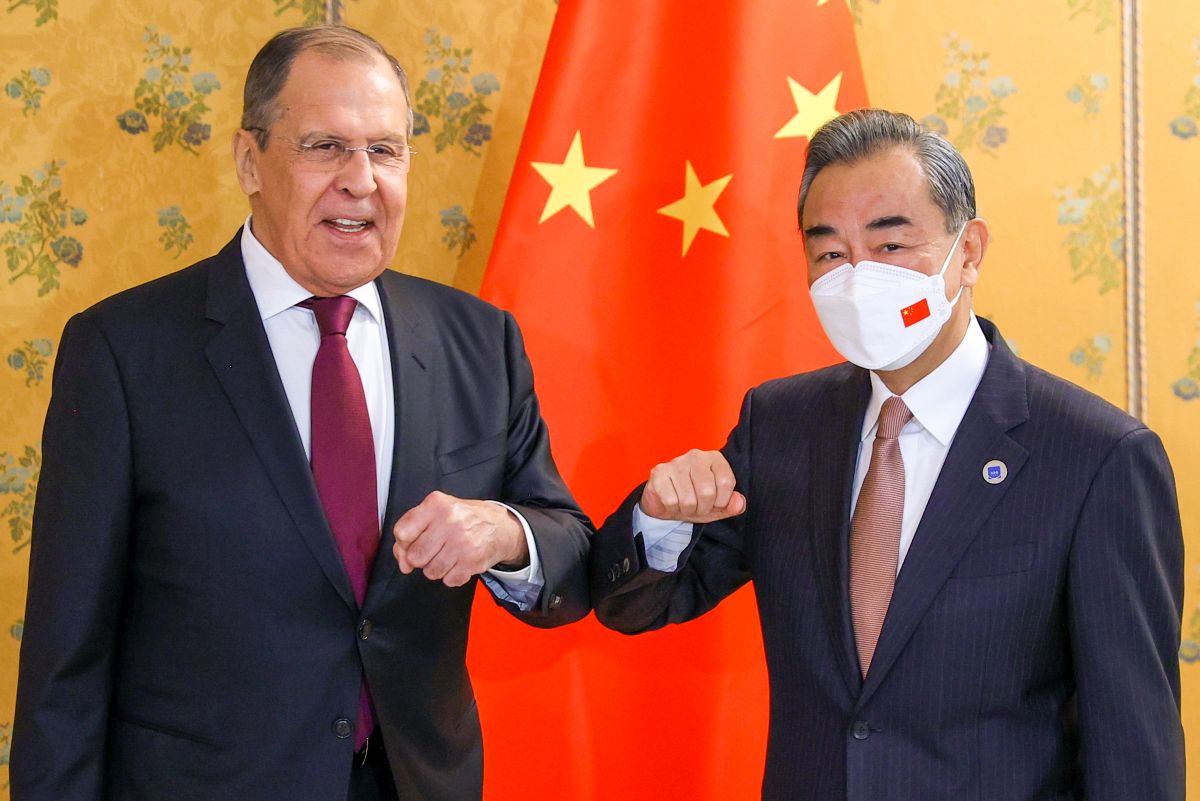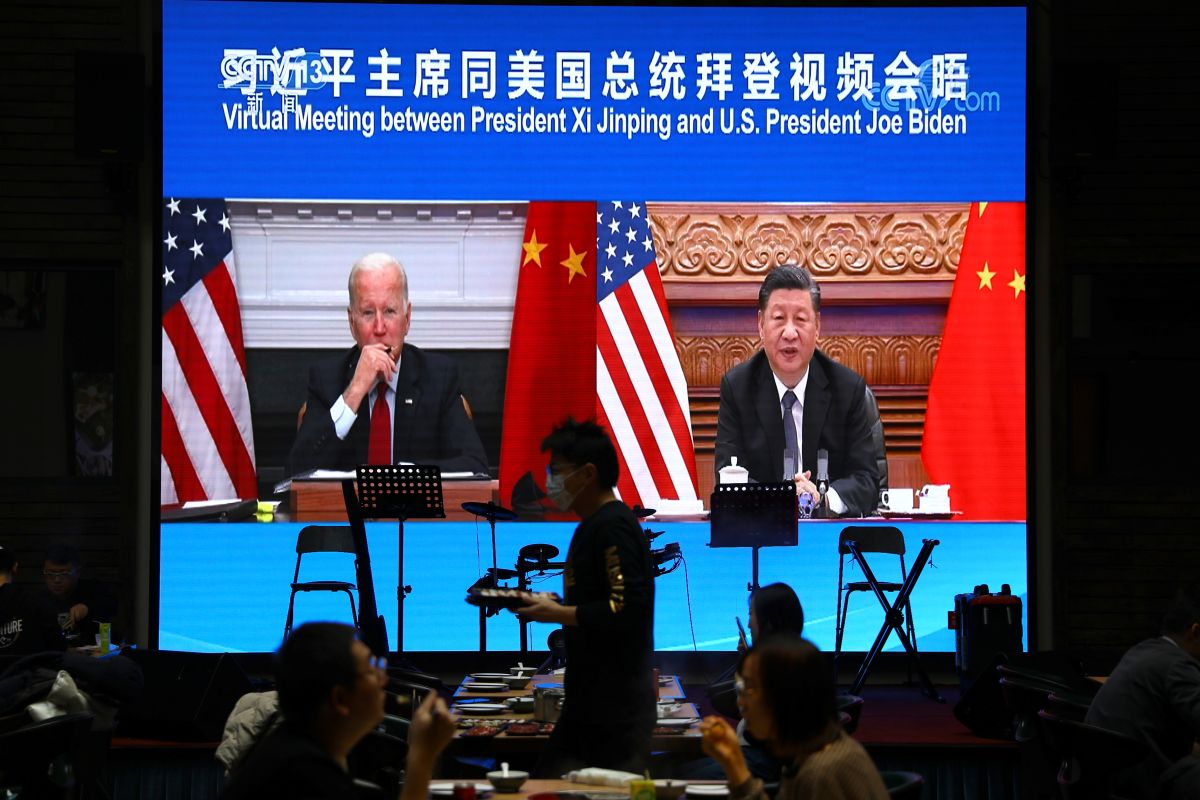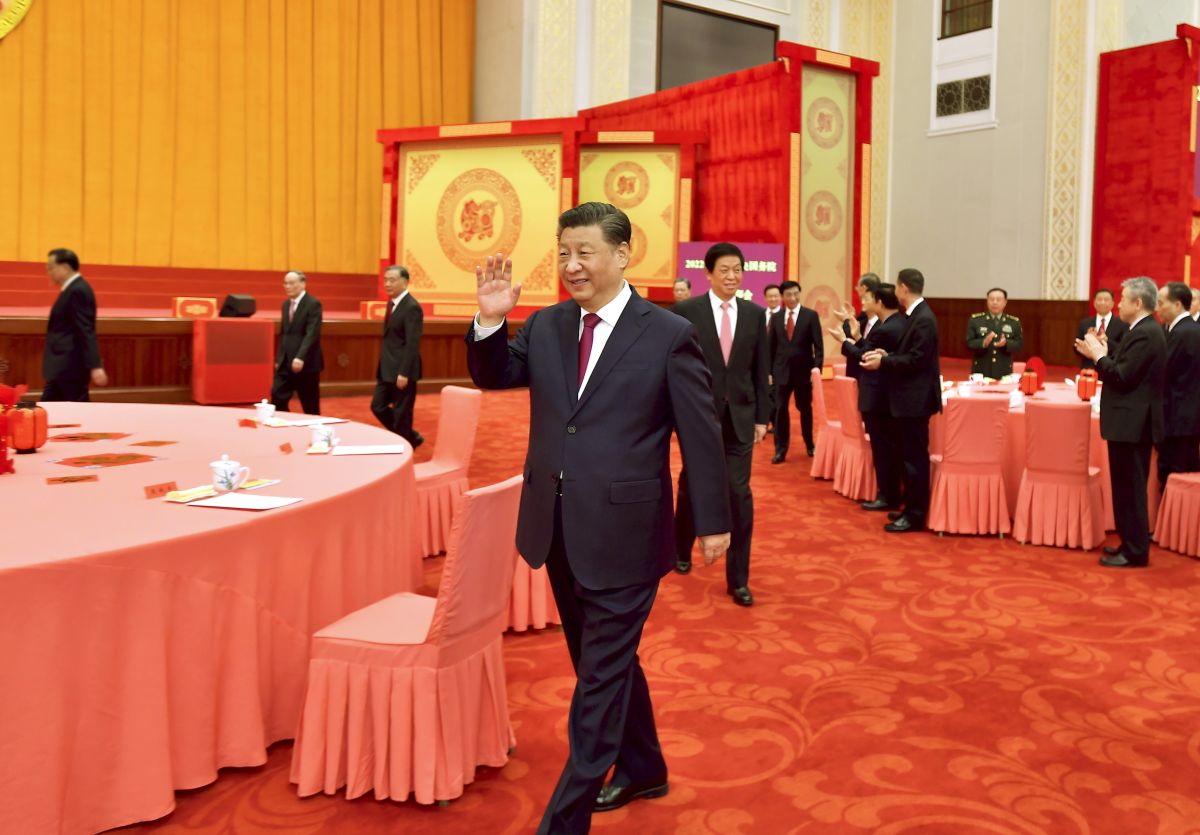China's Support for Russia in Its Aggression Against Ukraine
China has supported Russia during its aggression against Ukraine but is not satisfied with the results of the operation. It describes the invasion as a legitimate response to Russia’s security concerns related to NATO enlargement. China’s support for Russia, although sometimes ambiguous, results from the priority on strategic cooperation between the two countries aimed at undermining the interests of the United States and its partners, both in Europe and in the Indo-Pacific.
 Russian Foreign Ministry/TASS/Forum
Russian Foreign Ministry/TASS/Forum
What is China’s position on Russia’s invasion of Ukraine?
China’s stance is presented mainly by the spokesmen of the Chinese Ministry of Foreign Affairs during regular press conferences. Statements by government officials, particularly Foreign Minister Wang Yi and |Chairman Xi Jinping, are parts of messages published after talks with their counterparts from other countries.
In a telephone conversation on 25 February with the Russian president, Xi Jinping emphasised China’s commitment to respecting the sovereignty and territorial integrity of states. He also supported possible Russian-Ukrainian talks and the concept of building a new security mechanism in Europe, which is in line with Russia’s demands. This position was further developed by Minister Wang Yi on 25 February in talks with European partners when he stated, among other things, that China is not satisfied with the current developments in Ukraine. The Chinese side stresses that Russia’s concerns about its security are legitimate. It suggests an American responsibility for the crisis, cites the completed and potential NATO enlargements (describing the Alliance as simply a “relic” of the Cold War), and claims Ukraine’s failure to comply with the Minsk provisions. In line with the Russian narrative, the Chinese MFA calls Russia’s invasion of Ukraine a “special military operation”, opposes the sanctions against Russia, and declares it is ready for bilateral economic cooperation with that state. China, though, is trying to show support for Ukraine’s territorial integrity and its dissatisfaction with Russia’s aggressive military operation. They do this ambiguously, though, speaking in general terms about respect for the sovereignty and territorial integrity of each state. This is a different position than during Russia’s forced annexation of Crimea in 2014 when China did not elaborate on Russia’s actions and avoided unambiguous declarations.
Why is the Chinese position so ambiguous?
The ambiguity in China’s position is, on the one hand, a signal of support for Russia while, on the other hand, a way to avoid possible U.S. and EU retaliation, which may adversely affect trade relations, access to modern technologies, and other areas. Instead, it offers signals about support for negotiations or a “|dialogue of both sides”. An element of this policy was China’s abstention on a UN Security Council resolution and instructions to Chinese state-owned banks to comply with some of the financial sanctions imposed by the U.S. on Russia.
China realises that indirect support for Russia will not change the perception in the world that the Russian Federation is responsible for the aggression against Ukraine. However, the Chinese want to convince people in the West who seek a more intense rivalry with China that it is not the main threat to the stability of the international order.
Why does China support Russia?
For China, Russia is a partner in the implementation of plans to revise the existing international system and its aim to build up its superpower position. China has asymmetric but comprehensive strategic cooperation with Russia, aimed at undermining the interests of the U.S. and its allies. The goals of both China and Russia are evidenced by the joint statement following the Xi-Putin meeting on 4 February in Beijing in which, from the Chinese perspective, this means rejecting Western democratic concepts, the primacy of international law, and striving to build zones of influence subordinated to, respectively, Russia in Central/Eastern Europe and China in the Indo-Pacific. China’s cooperation with Russia is much more important than, for example, the benefits of economic cooperation with Ukraine or possible disturbances in the world economy caused by the escalated Russian aggression, including the increase in energy commodity prices.
The second reason for supporting Russia is Taiwan. The Russian aggression against Ukraine is an opportunity to test the reaction of the international community, especially the West, in the event of a possible Chinese military operation against Taiwan. This applies in particular to the U.S. approach and commitment to the defence of the island, which is a decisive factor in the decision-making process of the Chinese authorities regarding possible offensive actions. In this context, the failure of Western military support for Ukraine in the face of Russia’s aggression argues for China taking a decision to take over Taiwan by armed force. Some Chinese party media already portrayed Taiwan as the “Chinese Donbass”.
Will China change its position on the Russian attack on Ukraine?
It is unlikely, even if Chinese citizens currently residing in Ukraine are harmed. The growing dependence of Russia on China’s support because of the conflict is convenient for China. Therefore, the Chinese will support Russia in a limited way so as to prevent, for example, Putin from losing power, which is the guarantee of the current cooperation. The balanced nature of the talks China’s chairman and the Russian president and Xi’s suggestions of support for a possible Russian-Ukrainian dialogue are an attempt to defend China’s concept of “non-interference” in other countries’ internal affairs, which is a cornerstone of its foreign policy. This does not mean that the Chinese authorities are ready to influence Russia to end or limit the current aggression, but they consider how their support will be interpreted, for example, among China’s partners in Africa or Southeast Asia as contrary to the anti-colonial and anti-hegemonic propaganda to date. In view of the Chinese authorities, their repeated calls for de-escalation, dialogue, and emphasising the territorial sovereignty of other countries will be enough to avoid a significant reaction from the EU or the U.S., which are focused on stopping Russia’s aggression against Ukraine.




